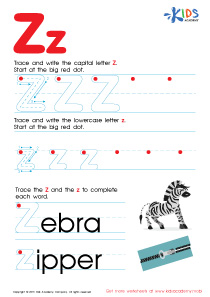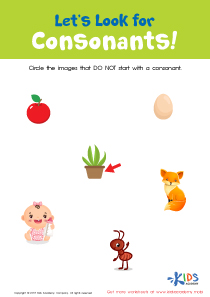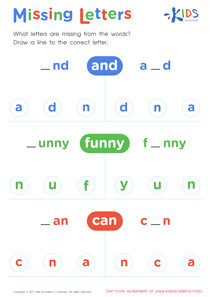Vowel Recognition Extra Challenge Phonics Worksheets for 3-Year-Olds
7 filtered results
-
From - To
Boost your child's early phonics skills with our Vowel Recognition Extra Challenge Phonics Worksheets designed for 3-year-olds. These engaging printables from Kids Academy focus on identifying vowels through fun and interactive exercises. Perfectly tailored for young learners, they enhance letter recognition, sound association, and early reading abilities. Each worksheet offers a playful blend of puzzles, coloring sections, and simple activities that make learning vowels enjoyable. Ideal for parents and teachers aiming to provide a solid phonetic foundation, these worksheets ensure your little one stays interested while mastering essential literacy skills. Start your phonics adventure today!
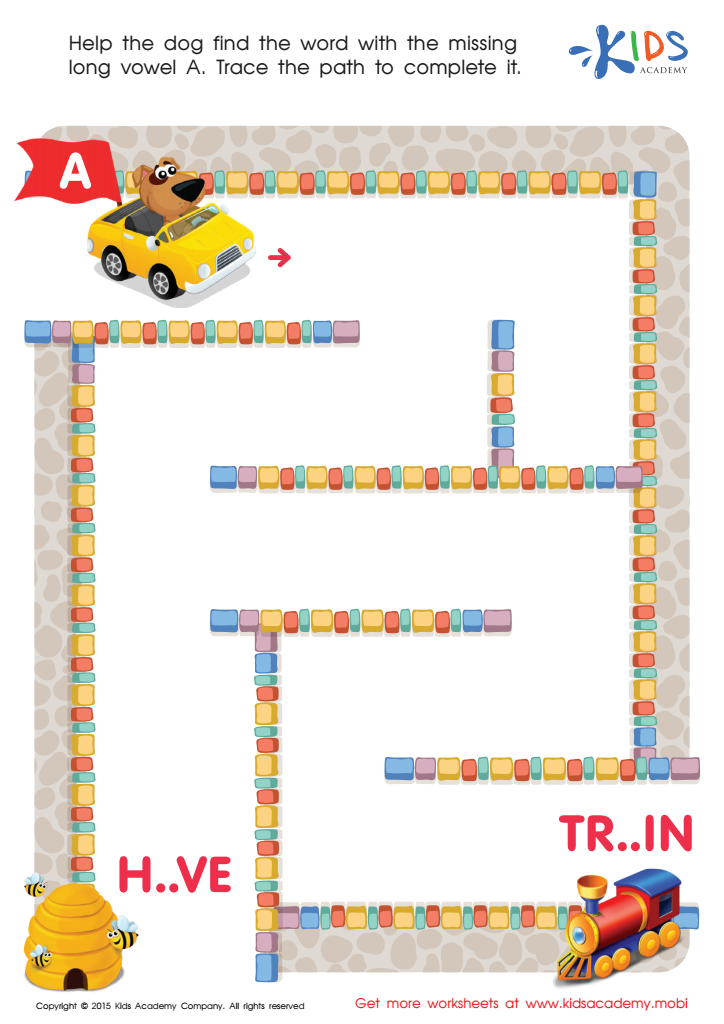

Long Vowel Sound A Worksheet
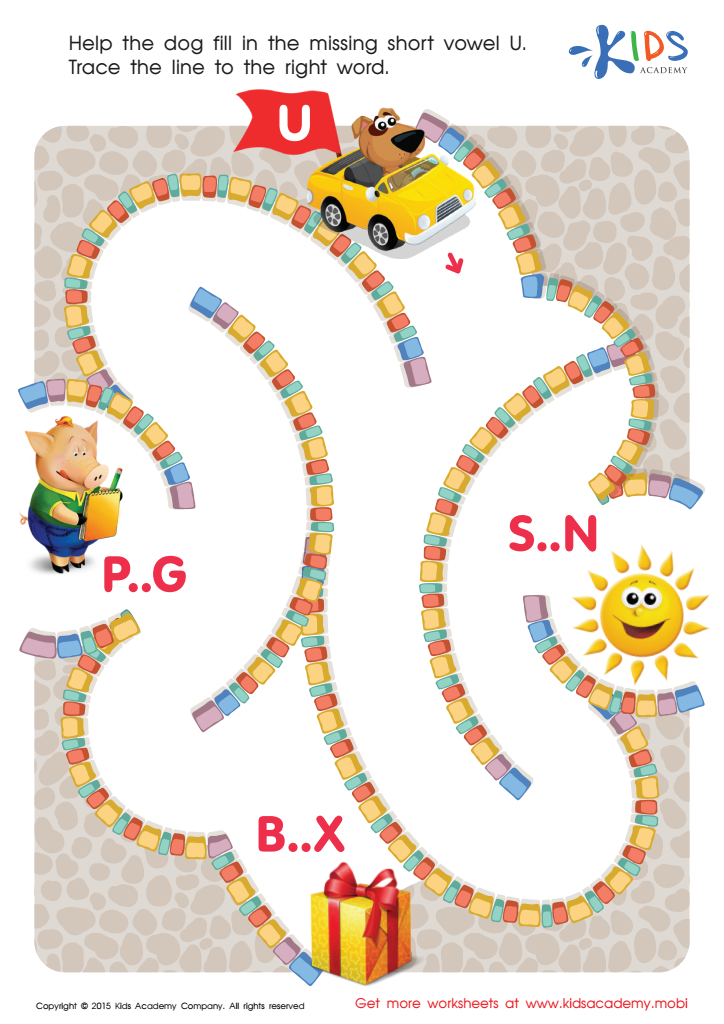

Short Vowel Sound U Worksheet
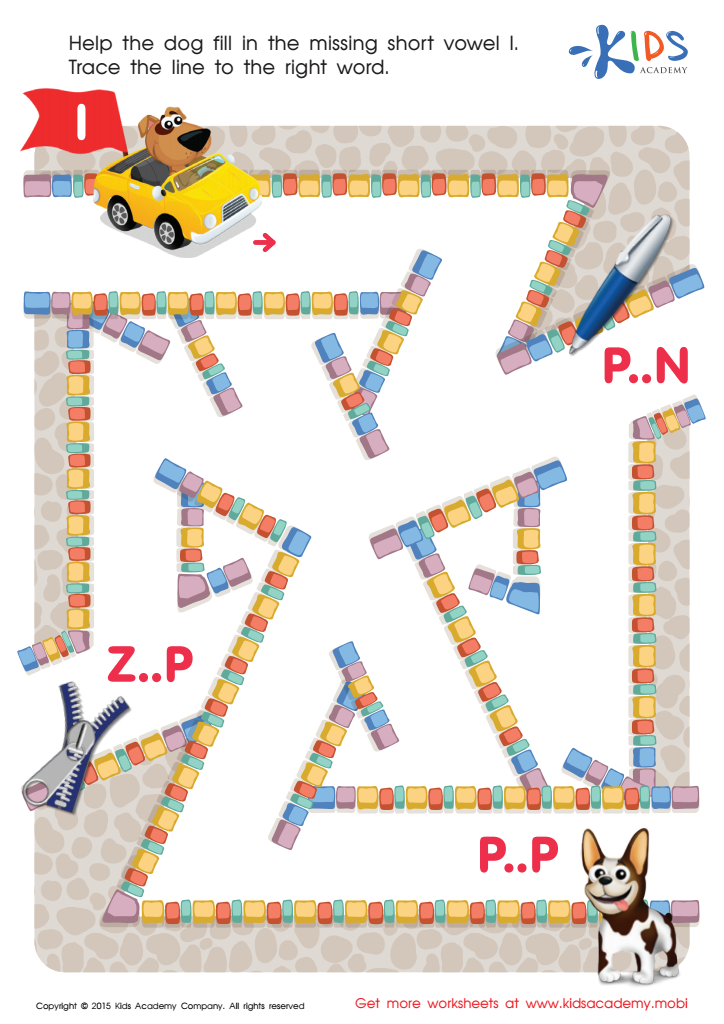

Short Vowel Sound I Worksheet
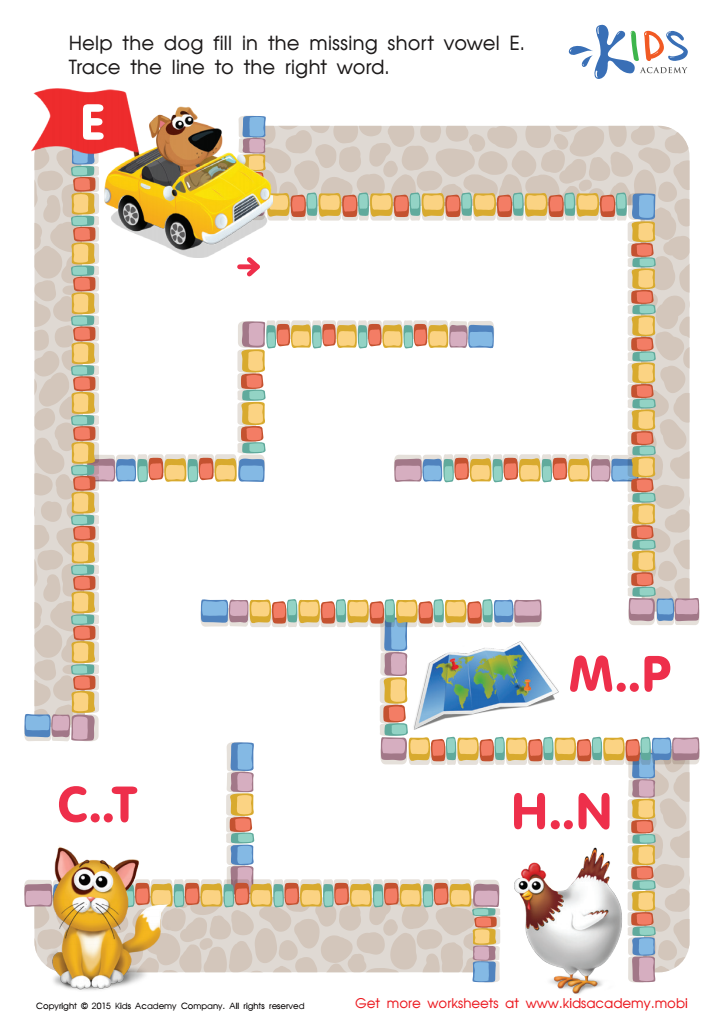

Short Vowel Sound E Worksheet
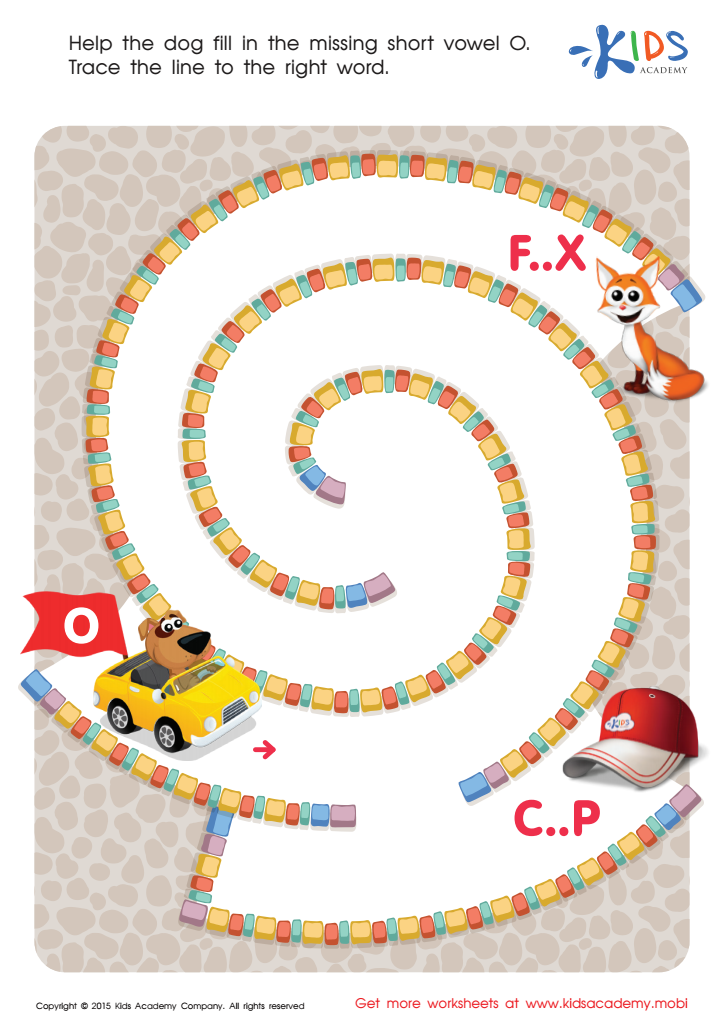

Short Vowel Sound O Worksheet
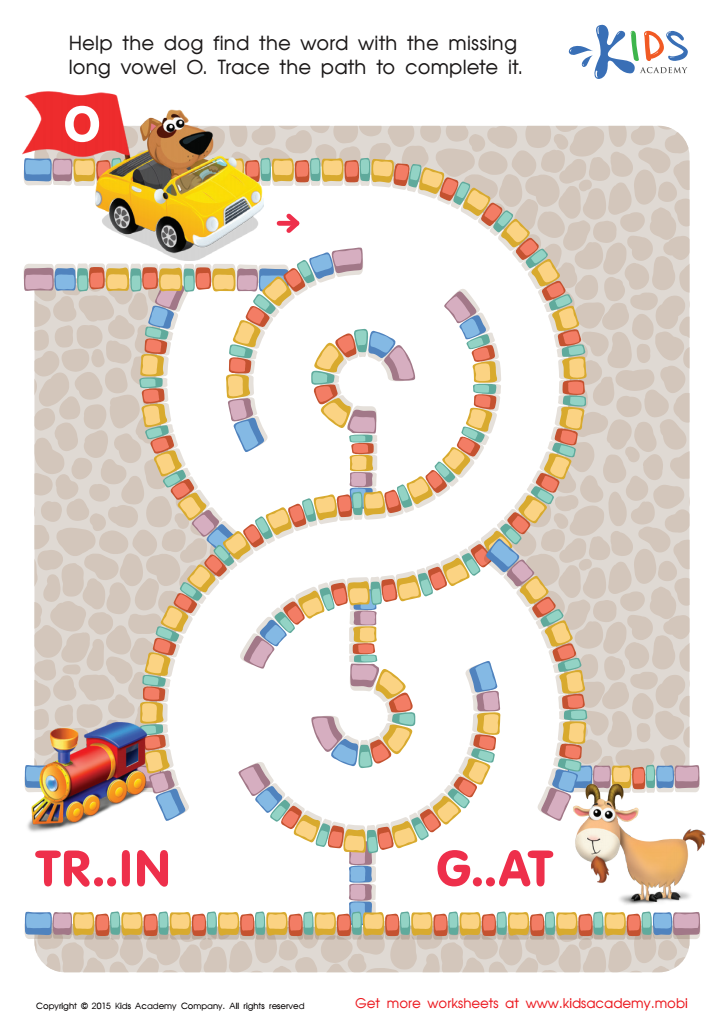

Long Vowel Sound O Worksheet
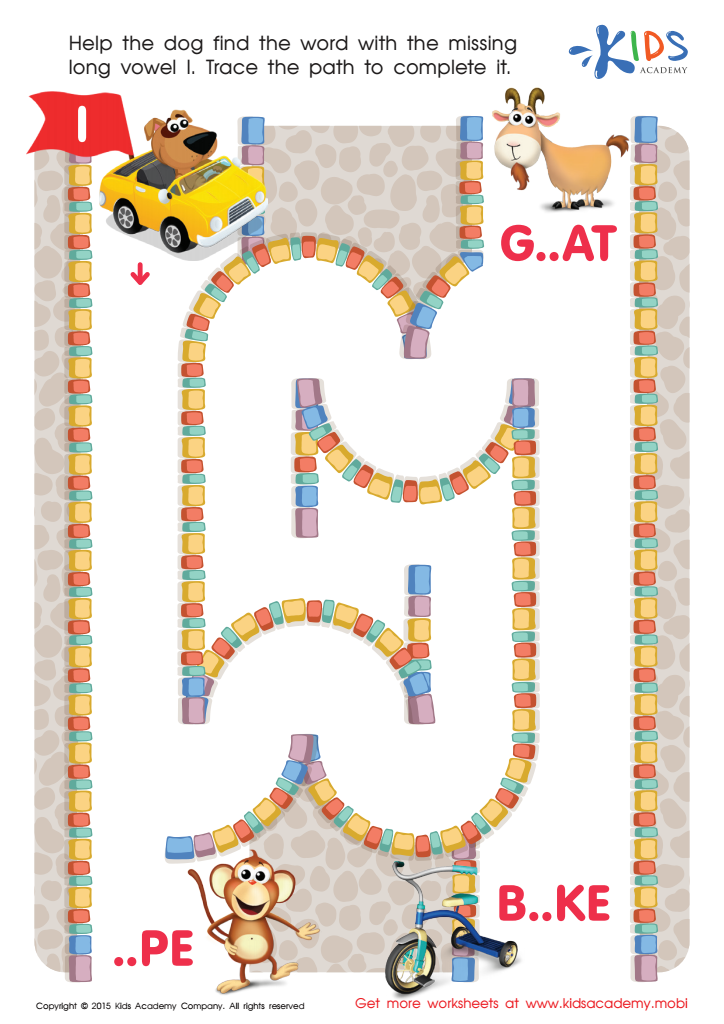

Long Vowel Sound I Worksheet
Understanding vowel recognition is crucial for the early stages of literacy development, particularly for 3-year-olds who are embarking on their language journey. Parents and teachers should care about incorporating Vowel Recognition Extra Challenge Phonics into a young child’s learning portfolio because it lays the foundational stones for reading fluency.
Vowels are critical components of English words. They provide structure and make it possible to form syllables, which are the building blocks of words. When 3-year-olds get extra practice for recognizing vowels, they become adept at differentiating between sounds, an essential step in decoding words later.
Phonics activities that challenge a child’s vowel recognition skills can accelerate their ability to blend sounds together to form coherent words. This not only aids in their reading ability but also enhances spelling and writing skills down the line. Early exposure to vowels and phonics strengthens cognitive development, language comprehension, and verbal expression.
Moreover, engaging and challenging phonics activities captivate young minds, fostering a love of learning. It grants children confidence as they recognize patterns in speech and text, boosting their self-esteem. Thus, incorporating Vowel Recognition Extra Challenge Phonics for 3-year-olds isn’t just important but paramount for holistic, literacy-centered early childhood education.
 Assign to My Students
Assign to My Students









